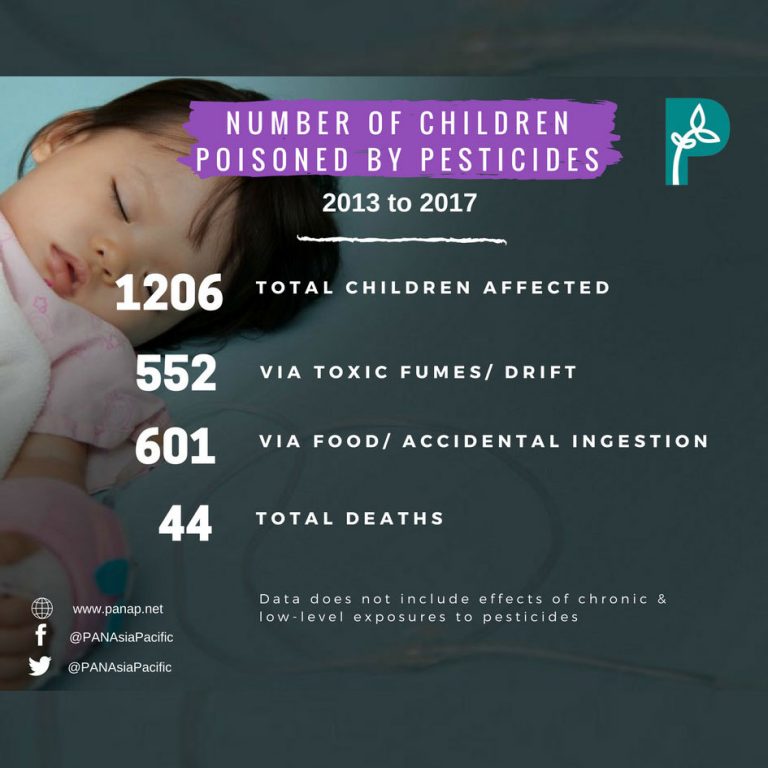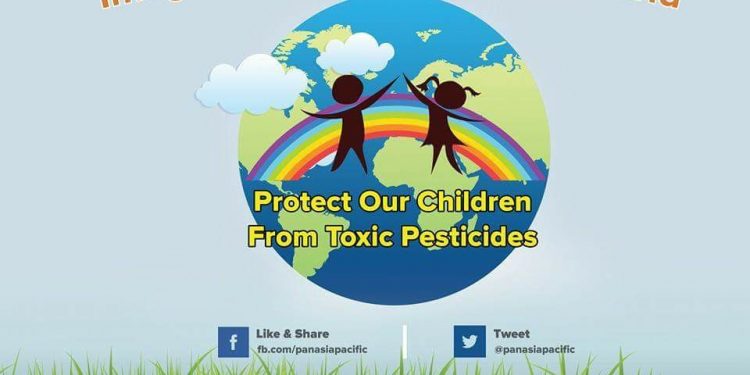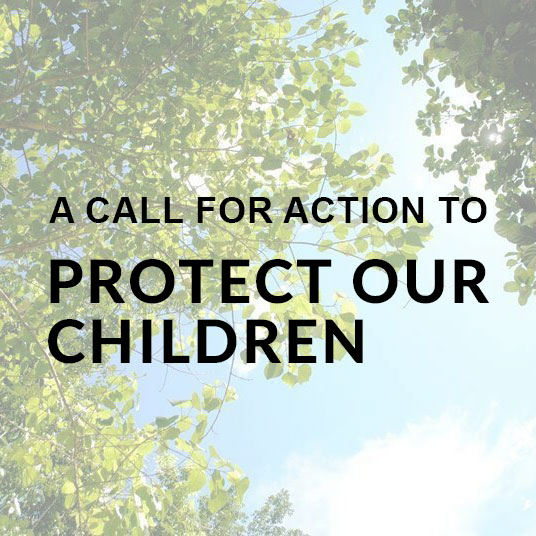PANAP is inviting all of you to join to commemorate International Children’s Day on Nov 20th, 2017 and No Pesticide Use Week (December 3rd to December 10th) as part of the Protect Our Children from Toxic Pesticides Campaign.
This year our focus will be on creating a safer world for children. Based on PANAP’s POC Watch, the latest initiative of PANAP to closely monitor and expose violations of children’s rights, there have been over 1,000 children affected by the use of pesticides. Out of this number, 44 have lost their lives.

Children are exposed to pesticides through their environment via the air they breathe, the food they eat and the water they drink. Schools are meant to be a safe environment for children, but many school children in Asia (both rural and urban areas) are exposed to pesticides while they are in supposedly safe learning environments.
One of the main causes of pesticides exposure is due to “pesticide drift”. Pesticide drift is the physical movement of pesticide droplets from the source farm to a site not intended for application via the wind.
Due to pesticide drift, school children are continuously being exposed to the pesticides from adjacent or neighbouring farms. Therefore, school children and their teachers are unknowingly being exposed to pesticide residue without their consent. Pesticide drift poses serious environmental and health risks, especially to children.
Pesticides have been linked to learning disorders, cancer and various developmental disorders among children. To protect children from further pesticide exposure, let’s work together to make our call for buffer-zones around schools even stronger this time and push for agroecology as an alternative to current farming methods.
Our efforts have been reinforced by the joint report of two UN Special Rapporteur’s which stated the need for a buffer-zone around schools and to replace chemicals like pesticides with biology for a better environment for our children’s future.
Call for Action
- Call for a 1 km or more pesticide-free buffer zone to protect children from toxic pesticides. This would be a comprehensive zone where pesticides cannot be applied especially around schools.
- Assist farmers, particularly in these zones, to transition to agroecology and so they can replace pesticides with nonchemical methods of management.
- Agroecology is effective in managing agricultural pests, diseases and weeds and is practised successfully by farmers around the world, resulting in reduced costs and increased incomes for farmers. The process would also include training and capacity building on agroecology. Agroecology provides children with a safer environment.
- Ban and Phase-out of Highly Hazardous Pesticides especially the “Terrible Twenty” Ban the use of 20 Highly Hazardous Pesticides or HHPs in your respective countries. They are known to cause irreversible damage to the developing brain of children and are linked to attention deficit disorders, autism, birth defects and cancer. Ultimately, these HHPs must be completely phased out.
![]()

20 November 2017
International Children’s Day
- Download our material books, memes, infographics, bookmarks, and stickers here.
- Send us Materials – related comics, artwork, stories, poems, materials and other related resources to and contact deeppa.ravindran@panap.net and danica.castillo@panap.net for more information.
- Sign and share the petition here on the urgent call to urge state governments to institute pesticide-free buffer zones around schools and encourage others to do the same.
- Inform others of the campaign and share the PANAP resources with them
3 – 10 December 2017
No Pesticides Use Week
Human Chain for a Just and Pesticides Free World
- Identify a date from 3-10 December where you plan to hold the human chain
- Identify the numbers of people to do the human chain.
- Make your human chain activity as creative as possible. Some of the suggestions are the following:
- Placards with calls to action
- Faces or names of victims of pesticide poisoning. See examples below
- Send the pictures to PANAP at danica.castillo@panap.net with the following details:
- Number of people who joined the human chain
- Date and place who joined the human chain
- A short description of the activity. 2-3 Sentences will do.
- PANAP will compile all these pictures into one big picture and will be featured in our website and social media platforms

![]()

- Like our facebook page at PANAsiapacific, follow us on twitter @PANasiapacific. Post your contents and start a dialogue with the hashtag #PesticidesFreeWorld and #CorporateAccountabilityNow
- Sign and share the petition for 1 km or more pesticide-free buffer-zone here.
- View, download and share our reports, campaign materials and articles here.
- View and share our informative videos on #CorporateAccountability here and #PesticidesFreeWorld here.










Discussion about this post